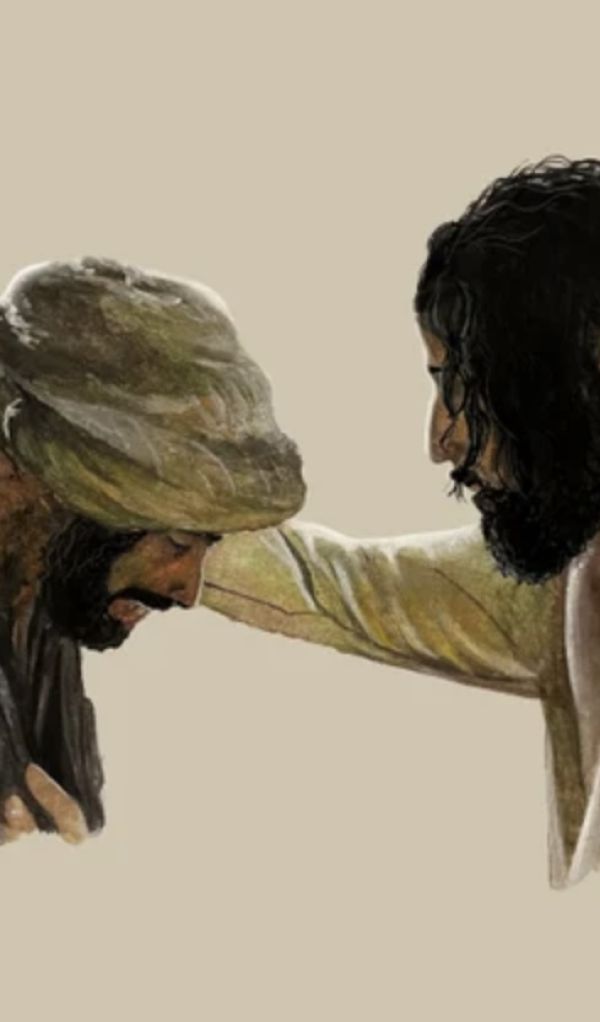The leper and the Touch
(Mk 1:40-45)
Jesus' Touch sums up His life, teaching and mission. God is all off the line, and not afraid of contaminating Himself - not even with an individual covered in disease and cracks (v.40).
No leper could approach anyone - let alone a man of God - but Mk wants to emphasize that it is the usual way of understanding "religion" that makes impure.
Legalistic norms marginalize people and blame them, make them feel dirty inside - inculcating that sense of unworthiness that negatively affects evolution.
Of course, made transparent in God, we all catch ourselves full of evils. But this must not mark our history.
In Christ poverty becomes more than a hope (vv.40-42).
His Love is symptomatic and engaging, because he doesn’t wait for perfections first.
The Source of Freedom transforms, and does not modulate generosity on the basis of merits - on the contrary, needs.
The religious norm accentuated exclusions and chastished the poor to solitude. The leper had to live far away.
But having realized that only the Person of the Lord could clean him, he set aside the Law that had put him in punishment for vacuous prejudices.
Mk means: we must not be afraid to denounce with our own initiative that some customs are contrary to God’s plan.
Watch out for models!
To help one’s neighbour who is judged impure, precarious and contaminated, the Son also transgresses the religious directives.
It required to be on guard against lepers - suffering from an evil corroding inside, very image of sin.
That gesture imposes the ‘practice of risk’, although by rule of religion He himself with his Touch becomes a polluted to heal and keep distant (v.45) - deprived of rights.
But He reveals the face of the Father: He wants each of us to be able to live with others and be accepted, not segregated - reinterpreting the primordial prescriptions (v.44).
He is saying his own intimates, who already in the first communities showed strange tendencies: you are obliged to welcome in everything even the misfits, those out of the loop and miserable, and let them take an active part in the liturgies, in the meetings, in the joy of the festivities.
Beautiful such a subversion! It combines the divine and human traits, in an incomparable way.
Overturning that offers us the purity of God and entrusts our uncertainty to Him: precisely, only eversion that gathers many crowds «from every side» (v.45).
Really lovable Proposal, free of forcing and dissociations. For each, without hysterical tares.
Wisdom that transmits self-esteem and will amaze us with blooms. Complicity of a God finally not unpleasant.
Eternal who makes himself Present in the very foundation and sense of the divine-human place on earth: his Vineyard of inapparent people.
In this way He can break down the barriers of "religious" defects, and make everyone feel ‘adequate’.
[Thursday 1st wk. in O.T. January 16, 2025]












